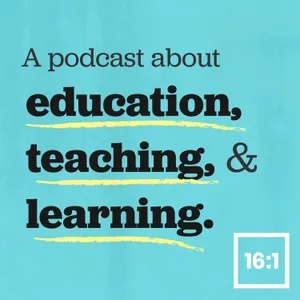Landmark Supreme Court Cases That Changed U.S. Education: Part I

Education Headline Roundup
- This week’s headline roundup brings an update to the evolving story of U.S. colleges & universities rescinding test-optional admissions policies. Yale, MIT, and Georgetown have joined Dartmouth in reinstating a requirement that students submit test scores with their college applications. Students at Dartmouth attended a tense office hours session on Feb. 5 with university administrators to voice concerns with the College’s reinstatement of mandatory test score submission, arguing that it will result in a less diverse applicant pool. In other Dartmouth news from last week, the college also just settled in class-action suit involving 17 elite universities that alleged they engaged in an anti-competitive tuition price-fixing scheme that may have disadvantaged certain applicants due to their financial status.
- The Chicago Board of Education has voted unanimously to remove school resource officers from Chicago Public Schools by the start of next academic year. This decision followed years of debate and advocacy, driven by several key factors, including concerns about disproportionate policing impact on minority students and the efficacy of SRO programs in preventing safety incidents. Advocates proposed investing in social workers, counselors, and restorative justice programs as more effective and equitable approaches to address safety concerns.
- Harvard University is forming a working group to explore formalizing a policy of “institutional neutrality” following recent controversies involving pro-Palestinian and pro-Israeli student demonstrations that ultimately led to the resignation of Harvard president Claudine Gay.
Landmark Supreme Court Cases That Changed U.S. Education: Part I
Join us as we embark on a two-part series exploring landmark Supreme Court cases that have profoundly impacted the landscape of education in the United States. This week’s episode includes discussions of the following cases:
- Brown v. Board of Education (1954): Challenging racial segregation in public schools.
- Engel v. Vitale (1962) & Abington School District v. Schempp (1963): Establishing the separation of church and state in public education.
- Tinker v. Des Moines Independent Community School District (1969): Defining students' First Amendment rights to symbolic expression.
- San Antonio Independent School District v. Rodriguez (1973): Addressing disparities in school funding across districts.
- Lau v. Nichols (1974): Ensuring equal educational opportunity for students with limited English proficiency.
- Regents of the University of California v. Bakke (1978): Addressing the use of affirmative action in college admissions.
- Board of Education v. Rowley (1982): Establishing the standard for providing education to students with disabilities.
Stay tuned for Part II!
Sources & Resources:
Chicago Board of Education votes to remove police officers from schools.
Chicago Board of Education unanimously votes to remove school resource officers from CPS
Class-action lawsuit accuses 17 elite universities of running 'price-fixing cartel'
‘This Has to Stop’: Harvard Set to Consider Institutional Neutrality | News
Brown v. Board of Education (1954) | National Archives
Plessy v. Ferguson (1896) | National Archives
Facts and Case Summary - Engel v. Vitale | United States Courts
https://books.google.com/books?id=Qc5Ove6xYf8C&pg=PA16#v=onepage&q&f=false
Abington School District v. Schempp :: 374 U.S. 203 (1963)
First Amendment and Religion | United States Courts
School District of Abington Township v. Schempp | First Amendment & Education | Britannica
The Schempp-Murray Decision On School Prayers and Bible Reading
Tinker v. Des Moines School Dist., 393 U.S. 503 (1969).
Tinker v. Des Moines | Wex | US Law | LII / Legal Information Institute
The Young Anti-War Activists Who Fought for Free Speech at School | History| Smithsonian Magazine
McCreary County v. American Civil Liberties Union
Safford Unified School District v. Redding | Oyez
Espinoza v. Montana Dept. of Revenue | Constitution Center
Kennedy v. Bremerton School District | Oyez
Supreme Court Sides With Coach Over Prayers at the 50-Yard Line - The New York Times
Supreme Court school prayer ruling in Lee v. Weisman and family's quest - The Washington Post
Board of Education of the Hendrick Hudson Central School District v. Rowley | Britannica
Regents of the University of California v. Bakke | Oyez
